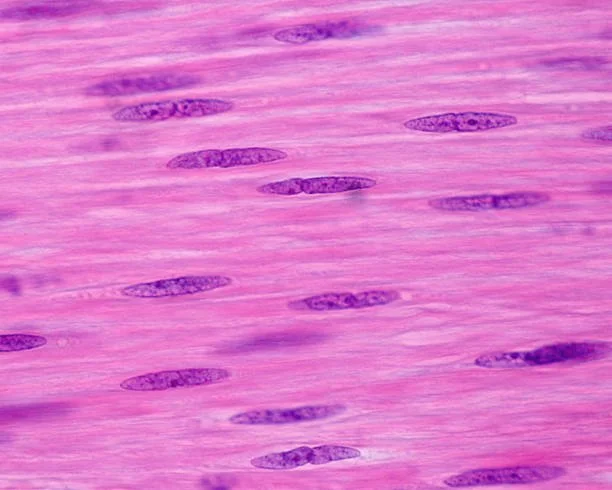The Biology of Muscle Growth: Understanding the Mechanisms of Action for Bodybuilding
Introduction
Bodybuilding is a science that requires an understanding of the biological mechanisms that drive muscle growth. In this article, we'll delve into the science behind muscle growth, including the key biological processes involved and how they can be optimized through training, nutrition, and supplementation.
Muscle Protein Synthesis: The Key to Muscle Growth Muscle protein synthesis (MPS) is the process by which muscle cells build new proteins. It is the primary mechanism through which muscle cells grow and repair themselves in response to training and other stimuli.
When you train with weights or perform other forms of resistance exercise, you create microscopic tears in your muscle fibers. In response to this damage, your body activates a series of signaling pathways that stimulate muscle protein synthesis. This leads to the formation of new muscle fibers, which can increase the size and strength of your muscles over time.
To maximize muscle protein synthesis, it is important to consume adequate amounts of protein throughout the day. Aim for at least 1 gram of protein per pound of body weight per day, and try to spread your protein intake evenly across your meals. Consuming protein before and after your workouts can also help to stimulate muscle protein synthesis and promote muscle growth.
Muscle Fiber Recruitment: Maximizing Muscle Activation Muscle fiber recruitment refers to the process by which your body activates more muscle fibers to perform a given movement. When you perform an exercise, your body recruits muscle fibers in a specific order, starting with the smaller, weaker fibers and progressing to the larger, stronger ones.
To maximize muscle fiber recruitment and promote muscle growth, it is important to use a variety of exercises that target different muscle groups and use different movement patterns. This can help to ensure that you are activating as many muscle fibers as possible and promoting balanced muscle growth throughout your body.
In addition, it is important to use a variety of rep ranges and training intensities to stimulate muscle growth. For example, using heavy weights and low reps can help to activate more muscle fibers and promote strength gains, while using lighter weights and higher reps can help to stimulate muscle endurance and promote hypertrophy.
Dorian Yates
Satellite Cell Activation: Building Muscle from Within Satellite cells are specialized muscle cells that are involved in muscle repair and growth. When your muscles are damaged, satellite cells become activated and migrate to the damaged area, where they help to repair and rebuild muscle tissue.
To optimize satellite cell activation and promote muscle growth, it is important to provide your body with the nutrients it needs to support muscle repair and growth. This includes consuming adequate amounts of protein, as well as other key nutrients like carbohydrates, fats, and micronutrients.
In addition, regular resistance exercise can help to stimulate satellite cell activation and promote muscle growth. By challenging your muscles with a variety of exercises and training modalities, you can help to stimulate satellite cell activation and promote balanced muscle growth throughout your body.
Hormones and Muscle Growth: The Impact of Testosterone, Growth Hormone, and Insulin Hormones play a key role in muscle growth, with testosterone, growth hormone, and insulin being some of the most important hormones involved.
Testosterone is a hormone that is primarily produced by the testes in men and by the ovaries in women. It is a potent anabolic hormone that helps to promote muscle growth, bone density, and strength. By increasing testosterone levels through resistance exercise, diet, and supplementation, you can help to promote muscle growth and improve body composition.
Growth hormone is another hormone that is involved in muscle growth. It is produced by the pituitary gland and helps to promote muscle growth, bone density, and fat loss. By optimizing growth hormone levels through exercise, sleep, and nutrition, you can help to promote muscle growth and improve body composition.
Insulin is a hormone that is produced by the pancreas and helps to regulate blood sugar levels. It is also involved in muscle growth, with higher insulin levels being associated with increased muscle protein synthesis. By optimizing insulin levels through diet and exercise, you can help to promote muscle growth and improve body composition.
Victor Martinez
Conclusion
Muscle growth is a complex biological process that requires an understanding of the mechanisms involved. By optimizing muscle protein synthesis, muscle fiber recruitment, and satellite cell activation, and understanding the role of hormones in muscle growth, you can achieve the muscle gains you desire. Keep these principles in mind as you continue your bodybuilding journey, and always prioritize safety and health in your pursuit of gains.
Bodybuilding Picture Trivia Game




